#DSED
Text

DSED OCTOBER 2023 | Day 17: wreck
#our flag means death#ofmd#ofmd s2#izzy hands#draw something every day#dsed#dsed october 2023#drawing#doodles
78 notes
·
View notes
Text
EU tài trợ lắp đặt 10 hệ thống năng lượng mặt trời tại Đà Nẵng
EU tài trợ lắp đặt 10 hệ thống năng lượng mặt trời tại Đà Nẵng
Dự án trị giá 444.000 Euro, trong đó Liên minh châu Âu EU đóng góp 85%, được thực hiện từ tháng 7/2017 đến tháng 10/2020 nhằm lan tỏa việc ứng dụng nguồn năng lượng mặt trời sạch và bền vững tại thành phố Đà Nẵng.
Dự án Phát triển Năng lượng Mặt trời tại Đà Nẵng (DSED) do Trung tâm Tiết kiệm năng lượng và Tư vấn chuyển giao công nghệ Đà Nẵng thực hiện.
Công ty Năng lượng Mặt trời Bách khoa…

View On WordPress
0 notes
Text
My friends really wanted me to upload this angsty voxman drabble so… here! It's 668 words, and the starting/ending is intentionally ambiguous. 👍
Disclaimer: This is VERY very VERY heavily based on a scene from this fanfic. I thought it was interesting, and wanted to expand upon it further, but not enough to make an entire oneshot.
Second Disclaimer: This deals with alcohol misuse, and two mentally ill people sucking butt at relationships. The situation IS toxic, but this isn't meant to be an end all be all thing, they love each other immensely I promise.
Drabble is under the cut :)
_________________________________________________
Venomous had already finished two glasses of wine… but he craved more than just that. He craved something of a different flavor profile, specifically and Boxman had such a thing, right in his grubby little talon.
"Are you going to finish that…?" Venomous loomed over the other, very obviously looking down at his half drank glass of brandy.
"You've already had enough," Boxman rolled his eyes.
He hates when he gets like this, and it's always because of stupid Billiam and his stupid parties…
"Aw come on Boxy… don't be that way. I'm as sober as a judge," Venomous winked at the other and made a little clicking noise.
This… behavior truly frustrated Boxman… but, he loves Professor Venomous, and that includes every side of him. Even if that meant he had to deal with his provocative side. In fact, maybe if he turned this into a game it could get him out of this alcohol crazed muck, at least for now.
"You know… your charm isn't as effective as you think, P.V…!" Boxman cackled evilly, before he downed the rest of the drink.
He then gave Venomous a smug grin, "Now you can't have it!"
Venomous grumbled, clearly aggravated. Seems the 'game' didn't work well on him.
Boxman sweat slightly but he could still save things! He just needed to take a different approach… one more methodical.
"Oh don't be like that Professor… I'm HELPING you, the more you drink, the more I'll have to deal with you in the morning," Boxman did his best to force a smile.
Perhaps it was the alcohol or the fact Boxman was preforming unmediated surgery on his ego, but that little comment really got to him,
"Oh, so I'm something you have to deal with now?" Venomous narrowed his eyes at Boxman, his voice however, remained relatively calm, considering the accusatory nature of his words.
The smiling façade quickly faded, and the nervousness of the situation intensified. "I- P.V that's not what I meant! Y-You just get very… fussy when you get migraines, b-but Lord Boxman is MORE than happy to take of you…!"
"So I am?!" Venomous hissed, "You think you can doll up your contempt for me I won't notice? Hm? Is that it?" This time, Venomous raised his voice, and people were now very obviously staring.
Boxman hated to admit it, but Venomous really scared him sometimes, not in the exhilarating way. But in the way that makes him terrified to exist in his presence, terrified that he'll breathe the wrong way, say the wrong things, give the wrong look. Though, to Boxman, the worst part of it all was knowing that these were the times Venomous hurt the most. He knows that he only lashes out because he's afraid; but that doesn't make Boxman any less fearful.
In spite of… everything, Boxman was willing to try and be a source of comfort. He didn't know what's wrong with P.V to get him in these states, but he wanted to be there for him to help push through things.
He placed his fleshy hand on Venomous’ arm, "P-Professor… I don't have contempt for you, I want you to stop drinking because I care about you…! Maybe I went about it the wrong way at first, b-but… I thought you would like it more if I acted joyful…"
Venomous flicked Boxman's hand off of him after he finished speaking, and just as angry before, he remarked.
"I'm sick of your bullshit, Boxman."
Swearing. Something which the two of them avoid… something which Venomous just did. Boxman has a very high tolerance for Professor Venomous’ behavior, but this is so… INEXCUSABLE! He's just TRYING to be mean.
"You… you…" He growls. "WE ARE NOT SPEAKING FOR THE REST OF THE NIGHT!"
"Fine by me," Venomous sneers.
Both headed in the opposite direction of one other, both pretended not to care. But both felt emotionally distraught at the feeling of not having the approval of one another.
#lazwrites#lazwritesvoxman#laz writes ok ko#laz drabbles about ok ko#voxman#professor venomous#lord boxman#cw alcoholism#cw alcohol#bpd venomous#npd venomous#the substances make the symptoms go crazy#dsed boxman#things get better when they do couples therapy#two messed up people who love each other but hurt each other because they are Emotionally Unwell#VENOMOUS SWEARS LMAO I FORGOT#i usually hate the characters swearing but it was kind of a Plot point here
11 notes
·
View notes
Text
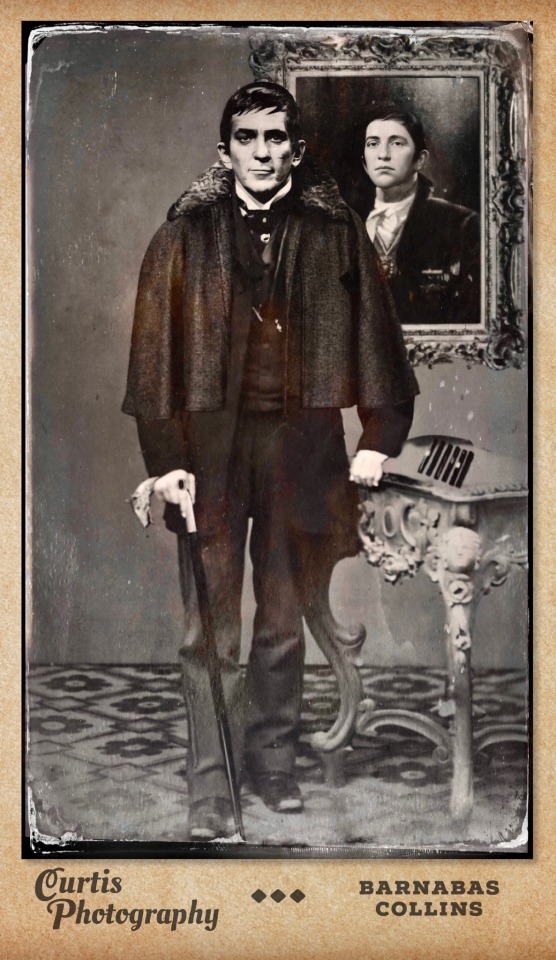
In 1897 Daniel Curtis, a traveling photographer, passed through Collinsport. He offered a group discount on Cabinet Cards (the selfies of the era). Many of the citizen paused from whatever personal drama was going on and took him up on the offer.
3 notes
·
View notes
Text
Trauma-Punk (Coining)
Concept
An aesthetic and social group/movement focused on trauma survivors of any and all kinds. You have gone through hell and back and you are allowed to be loud, angry, aggressive, and selfish. Traumapunk is for all the unsavory survivors who don’t fall into society's ideal victim mold. It’s taking back the power from times you could not before, it’s being independent and self assured, it’s saying fuck you to the system that allowed your traumas to occur, saying fuck you to the abusers you may have had. You don’t have to be quiet or docile, you can be loud and aggressive.
All trauma survivors matter, and the discrimination and biases we face on a daily basis should no longer go ignored. This is a movement for all the cluster-b disordered people, all the people with PTSD, all the people with DID/OSDD, and any other trauma induced disorders. Everyone with the “wrong” reaction to their trauma and everyone who has decided they will no longer take anyone's shit.
All trauma survivors can be a part of this, regardless of disorders or the lack thereof. Your trauma no matter how big, no matter how small, is valid.
Trauma Punk Flag
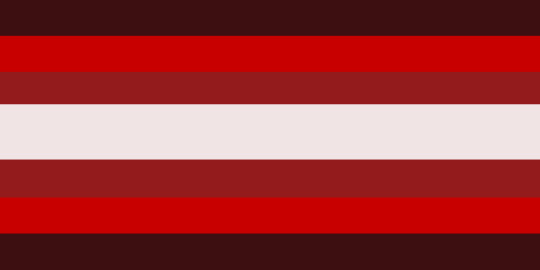
[Image ID: The trauma-punk flag, consistent of 7 stripes which are reflected horizontally. The stripes go as follows; Dark Sienna, Rosso Corsa, Old Brick, Carousel Pink, Old Brick, Rosso Corsa, and then Dark Sienna. The flag is all tinted towards a redish color. End ID]
The flags colors all have their own meaning
Dark Sienna: All the negative feelings and emotions that comes from having experienced trauma, the feeling of being alone.
Rosso Corsa: Anger towards what happened, having to fight to survive. Not being docile.
Old Brick: Any and all people with socially unacceptable reactions to their traumas- including disorders, temperament shifts, and being untrusting of others. (Separate from anger).
Carousel Pink: Recovery and healing
This flag is free to be used and never requires any credit.
Core Beliefs
Pro/Supports
People with Personality Disorders
People with PTSD/cPTSD
Traumagenic Systems (DID/OSDD)
CDDs (Complex Dissociative Disorders)
People with lesser known disorders like RAD, ASD (acute stress disorder not autism), DSED
People with trauma based adjustment disorders
People with trauma based anxiety disorders
People with “problematic” (trauma induced) OCD themes
Anyone with trauma
Low empathy
Hyper empathy
Well researched self-dx
Sex-workers
Hypersexual survivors
Sex repulsed survivors
Trans People
Gay People
Intersex people
Xenogenders
Self-defense
Angry Survivors
Survivors who want revenge
Survivors who want to see their perps be better people
Anti-Psych/Psych-Critical
Psychology/psychiatry should be available for those in need- however there are massive issues within the field and it needs to be addressed. We personally prefer Psych-Crit, but people recognize Anti-psych more.
Anti/Against
Ableists
“Narcissistic/Histrionic/Borderline/Sociopathic” Abuse
The abuser made their choice, having a disorder will never make someone be an abuser, that abusive person CHOSE to be evil. Your anger should be at them, not fellow trauma survivors.
Trauma Comparison
All traumas are valid, some may be harder to deal with than others but we are still all survivors.
Sanists
Fakeclaimers
You never know what someone is going through it is not your place to decide if they have a disorder or not
Terfs/Swerfs/Radfems
Transphobes
Homophobes
Transmeds
Intersexists
#trauma survivor#traumagenic#cluster b#PTSD#did#osdd#osddid#didosdd#complex ptsd#bpd#hpd#npd#aspd#pro sex work#psych ciritical#reactive attachment disorder#hypoempathy#low empathy#hyperempathy#high empathy#term coining#pro xenogender#traumapunk#trauma-punk#survivor#abuse survivor#personality disorders
1K notes
·
View notes
Text
Red Flag Reblog Game (?) but also a rant lol.
in honour of 'cutting off' a friend I didn't like (not really cutting off but more like. being honest about how I feel and both of us mutually deciding to not be as close as before as a result),
let me make a list of my red flags.
Because this is the second time I've cut off a friend like this 😭
Okay here we go...
🚩 Gets drained easily. High need of alone time.
🚩 Seen zones and late replies. Does not like people who can't understand my seen zones and late replies even after I've explained to them this habit before hand.
🚩 Deletes messages. I delete messages and then send a new message when I feel like the OG message could have been better phrased. I delete messages randomly sometimes for other reasons too.
🚩 Does not like clingy people who need to talk to me or be with me 24/7. This friend I 'cut off' (ughh cut off isn't rlly the right word. maybe, 'demoted friendship'? IDK 😭. Yeah lets just call it DS).
This friend I DSed once followed me w the intentions of dropping me to my driver. I told her, "I feel like being alone right now."
She said "No." and continued following me so I ended up talking to her. It was a good convo but I didn't like that she didn't take me seriously.
Next day, she tried to follow me again but I said "No I'm serious" sternly and started walking fast away from her
🚩 Acts light hearted during confrontations. When I confront someone abt something they did that bothers me, I say it in a light tone as to not 'hurt' them too much. This leads to them sometimes not taking me seriously.
🚩 Good at pretending that everything's fine. In 2 of my friendships, I have ignored their grieviances against me until the point it piled up, I had harbored too much hidden dislike against them and the next time I confronted them abt it, it was when I was already cutting them off.
Both friendships were shocked and did not expect that I had harbored things against them
🚩 Sensitive. (not really a red flag but you know, the thing w my friend I just DSed - - she said she just had satirical humour. She told me (not actual words) , 'I told you many times not to take my words at face value. If you haven't learned that, then clearly you aren't learning.'
In truth, I did not find her 'humour' funny and I found the things she said to me while we were still friends extremely discouraging 😭
🚩 Does not say everything that's on my mind at times.
🚩 Not pushy. In some situations - you NEED to be pushy. I am bad at being pushy but every day is progress ig
🚩 Might be socially awkward <<sometimes>>
🚩 can be rough w friends sometimes. <<sometimes>> (never with ill intentions though!! I don't do it to hurt them, it's just my hands are kind of heavy ig 😭)
🚩 Not confident in self.
🚩 Does not talk much about myself.
🚩 procrastinator
🚩 Dense. Dense. Dense. Dense. Do not give me 'hints' about how you feel. I might not interpret them properly.
🚩 People get attached to me because I listen to them. In fact, I LIKE listening to them. If they're my friend, I comfort them and am there for them.
It's when they start hurting me that I start hating them.
As mentioned above, I have a tendency to tolerate A LOT before deciding I don't like them as my friend.
Since I tolerate a lot, and act normal,
They usually get caught off guard when I tell them my feelings.
By the time I explain that I dislike them and/or want to 'take a break' or 'cut them off' they get shocked and sad
because they've been sharing intimate things to me and now they're about to lose me.
A lot of times I'm the 'listener' friend or 'the therapist' friend.
If I had to put it in words, sometimes I'm a machine that absorbs the rants and troubles of other people and gives them comfort. I use the word 'machine' because to SOME people (some not all) - I feel like a tool that they use when they need to express their emotions. Just a tool. Nothing more. They don't treat me well.
When I dislike the person, that machine runs out of battery and suddenly dies. But while it's still alive, this machine may not give a sign that it's running out of battery.
So the person continues hurting it and using it. And it suddenly dies on the person.
So the person is left feeling sad, confused, angry, and maybe regretful..but they probably understand. because the machine gives them an explanation.
If they don't understand, not my problem 😭
Yeah I think that's all my red flags. IDK.
Another thing
I guess it would be interesting and fun to see other people reblog this with their own red flags. So if u want to, feel free. feel free to rant ur experiences as well ig.
#random#I prob have more red flags but if i realize them ig ill just edit this post#But regarding those two friendships#I actually don't regret them#I feel glad im free of them#I deserve better 🤭🤭#First friendship was definitely toxic. NO NO NOOO INTENTIONS of going back to that person#Second friendship was more sad#Cause she explained that i just didnt get her humor#and she was a green flag plenty of times#but ehhhhhh#as i think abt it i actually dont regret losing her either#as sad as it is i didnt feel comfortable around her and she discouraged me lots of times. We also didnt click a lot.#if she takes time to reflect on the things i told her she'll understand why i dont like her#friendship#reblog game kinda (only if ppl reblog this)#red flags in friendship#If uve noticed a red flag in me that wasn't mentioned - feel free to send me an ask ig#can't guarantee that ill answer it haha but yeah
5 notes
·
View notes
Text
What are the symptoms of obsessive love disorder?
Symptoms of OLD may include:
an overwhelming attraction to one person
obsessive thoughts about the person
feeling the need to “protect” the person you’re in love with
possessive thoughts and actions
extreme jealousy over other interpersonal interactions
low self-esteem
People who have OLD may also not take rejection easily. In some cases, the symptoms could worsen at the end of a relationship or if the other person rejects you. There are other signs of this disorder, such as:
repeated texts, emails, and phone calls to the person they’re interested in
a constant need for reassurance
difficulty having friendships or maintaining contact with family members because of the obsession over one person
monitoring the actions of the other person
controlling where the other person goes and the activities they engage in
What causes a person to develop obsessive love disorder?
There’s no one single cause of OLD. Instead, it may be linked to other types of mental health disabilities such as:
Attachment disorders
This group of disorders refers to people who have emotional attachment issues, such as a lack of empathy or an obsession with another person.
Types of attachment disorders include disinhibited social engagement disorder (DSED)
CHIGGA
2 notes
·
View notes
Text
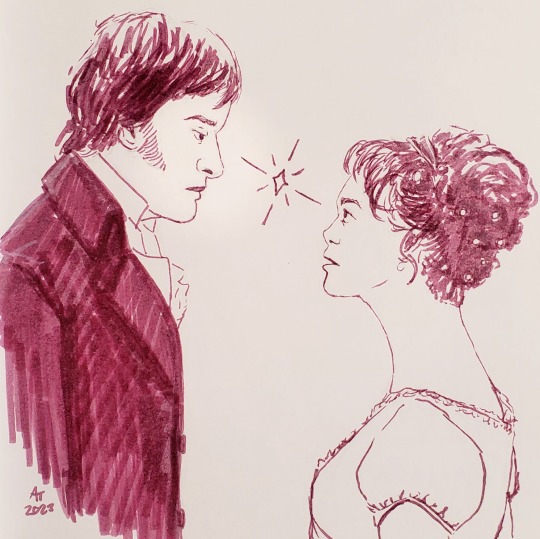
DSED OCTOBER 2023 | Day 9: prejudice
#pride and prejudice#pride & prejudice#p&p 2005#draw something every day#dsed#dsed october 2023#drawing#doodles
35 notes
·
View notes
Text
Understanding Attachment Disorder: Causes, Symptoms, and Types ?
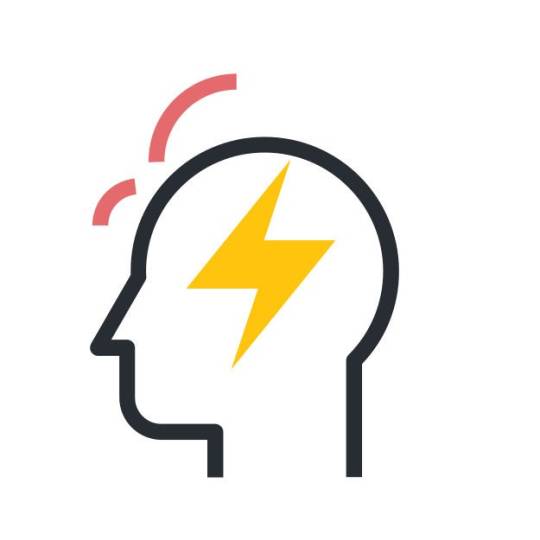
Attachment disorder is a complex psychological condition that affects individuals’ ability to form and maintain healthy relationships. In Ireland, access to support services such as couples counselling, relationship counselling, and depression counselling in areas like Rathmines and Dublin is crucial for those grappling with attachment issues. Let’s delve into the causes, symptoms, and types of attachment disorder to shed light on this often-misunderstood condition.
Causes: Attachment disorder typically develops in early childhood due to disruptions in the child’s primary caregiver relationship. Factors such as neglect, abuse, inconsistent caregiving, or separation from caregivers can hinder the formation of secure attachments. These early experiences shape the individual’s ability to trust others and regulate emotions, contributing to attachment difficulties later in life.
Symptoms: The symptoms of attachment disorder can manifest differently depending on the individual and their attachment style. Common symptoms include fear of intimacy, difficulty expressing emotions, lack of empathy, impulsivity, and distrust of others. Individuals with attachment disorder may struggle in romantic relationships, experience heightened anxiety or depression, and have difficulty maintaining friendships or professional connections.
Types: Attachment disorder is typically categorized into two main types: reactive attachment disorder (RAD) and disinhibited social engagement disorder (DSED). RAD is characterized by withdrawal, avoidance, and reluctance to form attachments with caregivers or loved ones. On the other hand, DSED involves indiscriminate sociability, excessive friendliness, and a lack of boundaries with strangers, reflecting a pattern of overly familiar behavior.
In Ireland, access to affordable counselling and psychotherapy services, including low cost options in Dublin and Rathmines, is vital for individuals struggling with attachment disorder. Seeking therapy, whether through couples counselling, relationship counselling, or stress counselling in Rathmines, can provide a supportive environment to explore attachment issues, develop coping strategies, and improve relationship dynamics. By raising awareness and understanding of attachment disorder, we can better support individuals in their journey toward healing and healthier relationships.
#Couples Counselling Dublin#Relationship Counselling Dublin#Relationship Counselling Rathmines#Depression Counselling Dublin#Depression Counselling Rathmines#Stress Counselling In Rathmines#Therapy South Dublin#Therapy Rooms To Rent By The Hour#Low Cost Psychotherapy Dublin#Low Cost Counselling Dublin#Affordable Counselling Dublin#Affordable Psychotherapy Dublin#Affordable Online Counselling Dublin#Affordable Psychotherapy Rathmines
0 notes
Text
rEtéErsYesosa eplohí
o aaudiaamldqiaqyito
ab,m u shulrieiin s
idu novddgauEuéal t,
dlhxneaecv ae n fnts
iSiuábioae tee dteS
u,De bdu rdtTceeraez
of cgi goc iteeiate
hed nartrnednieno ei
ra ih tvec iseuérrn
ía ñ tiaactfrat ugd
oo fhupvL nlrn ,ea
a yeec Llysátdts u
di tezelimde oceppv
e o gNn asaiis iq o
rflrays,oge ma tftet
rriaeri na freú ar v
rSannunlnueaurpoein
mf iooir o áh,mlae
a ío Naerngsneíí ne
aldír bhmto meeelui
loidrticnf rte n iat
iao nadu ác nes go
i goalareartvaeímS
alanéírernhéan ad
ntfz e h ísprue tn
adylEsariaonmylnfEe
fdoidésnooásc osgars
at reoiig eo e siYa
suoebaS eaieuoabg a
tnpín adilneld adie
tylelváppnac to lper
tmhi ne drn nu eas
npnf iri p rcaudúser
ireotoae a fe seas
n d nddgvmadna ñe
yeep ítrrene ssrour
stoí o satrudnn od a
rm íii gv e ciel e
venalg dsed tieaye
eeatstviotireeq sa s
drter e edea oeoít
eoamau renieeaetnr
ldgEegNde aepe qerei
nceE reie eeeiadtd
erserlovodo plrul e
tenn reS Ytsdotemndq
lpfrf raeagtos vdsec
míid uy ulS e bbt
s s vreelrurep pNeS
0 notes
Text
Attachment DYSFUNCTIONS (#3)
PREVIOUS :
Attachment Dysfunctions (#2)
NOTE: According to the DSM-5, RAD & DSED are two childhood socially disabling attachment disorders – resulting from childhood trauma,. RAD is not a form of Disorganized attachment, which is caused by confusing caregiver mistreatment & can lead to oppositional defiant disorder (ODD).
The critical period for damaged development is in the first 6 months of…
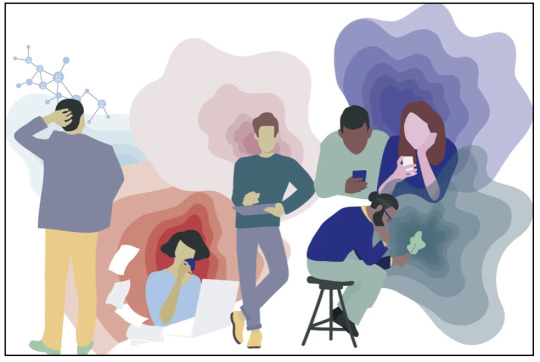
View On WordPress
0 notes
Text
Attachment Disorders
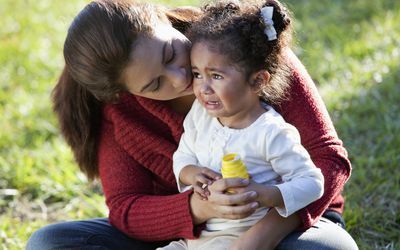
If you or a loved one suffers from one of the following Attachment Disorders, you may wonder how you can identify these behaviors. The four main attachment styles are secure, insecure-avoidant, disorganized, and ambivalent. The first two are genetically predisposed, and infants with consistently sensitive parents tend to be securely attached. Ambivalent resistant attachments are more common among children of inconsistently sensitive parents. However, there is some overlap among these different styles. Clearview Counseling Center has several therapist who can help with challenges related to attachment.
Anxious attachment style
In addition to having a disordered sense of self, people with anxious attachment styles may have been raised by chaotic, emotionally unavailable parents. These parents may have an inconsistent attachment style themselves, and this might make it harder for a child to feel secure in a relationship. Anxious attachment is also linked to difficulties in coping with stress and change. While the exact cause of this disorder is unknown, genetics is likely to play a part.
Children with a disordered attachment style develop this pattern during their early childhood. It is a symptom of inconsistent or misattuned parenting, which shuts out the child's awareness of their primary needs. It is a condition that may persist into adulthood. A child with a disordered attachment style is likely to develop a low sense of self and low self-esteem, making it difficult to form secure relationships later on in life.
Disorganized attachment style

Some people have difficulty healing from their Disorganized Attachment Style. While the attachment style of a child is a permanent factor in their life, some people learn to work with it through therapy. Psychotherapists use attachment theory to help people heal their disorganized attachment style. They may also use a specific type of therapy called emotionally focused therapy. This therapy will help a person who struggles with Disorganized Attachment Style to learn to work with it and develop a more secure relationship.
A child with a disorganized attachment style does not form feelings of security toward their parents as a child. As a result, this child will constantly stay close to their parents and will exhibit negative behaviors such as clingy, demanding, or jealousy. The consequences of a Disorganized Attachment Style include later in life when the child is an adult who feels jealous and clingy. This is because the Disorganized Attachment Style is a result of a lack of security in the early years.
Reactive attachment disorder
Reactive attachment disorder is a childhood developmental disability characterized by an aversion to physical contact and affection. They often express their anger directly, through tantrums, or by hiding it through socially acceptable behaviors. The symptoms of reactive attachment disorder are often overlooked by providers who don't know the child's history. Because of this, treating RAD may involve specialized treatment. Pediatricians and child psychologists should assess children with reactive attachment disorder.
Reactive attachment disorder may be caused by an event that isn't harmful to the child, such as the death of a family member. In such a case, the child is likely to be unable to comprehend what happened and may begin to distrust caregivers. Treatment may include the entire family, which may involve a combination of therapies and education. While the child and caregiver may not be able to fully overcome the disorder immediately, it can help them develop trust and bonding.
Disinhibited social engagement disorder
Children with disinhibited social engagement disorder (DSED) do not show normal reticence toward strangers. Instead, they become overly familiar with unfamiliar adults and will spend time alone or with strangers, regardless of safety or age. Although the exact cause of disinhibited social engagement disorder is unclear, it is thought to be related to childhood neglect. However, Mental Health Services may not be the same for all children.
While some of the symptoms of RAD are the same, disinhibited social engagement disorder is a separate diagnosis. The DSM includes a separate diagnosis for persistent disinhibited social engagement disorder, and it is considered severe if symptoms last for more than 12 months. The symptoms of disinhibited social engagement disorder in attachment disorders are similar to those of reactive attachment disorder (RAD). These children have difficulty forming emotional attachments and are afraid to interact with others.
How can Clearview Counseling Center Help?
Clearview Counseling Center has several therapists trained on different modalities to assist individuals, couples, and families impacted by different challenges. Working with a therapist helps clients learn new coping skills to better manage current stressors or triggers, which enhances their quality of life. If you need help, give us a call at (915) 200-4002 or visit our website. We know that finding a therapist can be a time-consuming process; that is why we have simplified it. From our website, you can schedule an appointment with ease; you do not even have call us. It only takes 2-3 minutes to schedule an appointment. Just click on the request appointment link. You can also call us if that is more convenient for you. We look forward to empowering you to live the life that you deserve!
Location 1
10921 Pellicano Dr.
Suite 122
El Paso, TX 79935
(915) 200-4002
Location 2
5625 Woodrow Bean Transmountain
Suite 106
El Paso, TX 79924
(915) 200-4002
0 notes
Text
Attachment Disorders in Adolescents
New Post has been published on https://solsticeeast.com/blog/attachment-disorders-in-adolescents/
Attachment Disorders in Adolescents

.Attachment disorders are a type of mental health condition that can develop in children who have experienced neglect or abuse. These disorders can cause problems with emotional and social functioning and can lead to difficulties in forming attachments with others. Although attachment disorders differ from other mental health conditions, they share some similarities. Here we will discuss attachment disorders, how they differ from other mental health conditions, how they affect adolescents, and what parents can do to help their teenagers.
What Are Attachment Disorders?
Attachment disorders are a type of mental health condition that can develop in children who have experienced relational trauma, neglect, or abuse. These disorders can cause problems with emotional and social functioning and can lead to difficulties in forming healthy attachments with others. Although attachment disorders differ from other mental health conditions, they share some similarities.
There are two types of attachment disorders: reactive attachment disorder (RAD) and disinhibited social engagement disorder (DSED). RAD is characterized by symptoms such as avoidance of touch, indifference to a caregiver, lack of eye contact, failure to smile, and lack of concern for a caregiver. DSED is characterized by symptoms such as impulsivity, over-familiarity with strangers, clinginess, and indiscriminate affection. Both types of attachment disorder can cause problems with emotional regulation, social skills development, and academic achievement.
How Do Attachment Disorders Differ from Other Mental Health Conditions?
Attachment disorders share some symptoms with other mental health conditions such as anxiety, mood, and conduct disorders. However, there are some key ways in which attachment disorders differ from these other conditions.
Anxiety disorders are characterized by excessive fear or worry that is not appropriate for the situation. Mood Disorders involve disturbances in mood or emotions. Conduct Disorder manifests as a pattern of aggressive or disruptive behaviors. One key way attachment disorders differ from these conditions is that they primarily involve problems with attachments to others rather than other symptoms such as anxiety or aggression. Additionally, anxiety disorders, mood disorders, and conduct disorders can occur without a history of neglect or abuse whereas it is not always necessary for that trauma to form an attachment disorder. Or a disruption in the relationship with the primary caregiver. This is often seen in cases of adoption or even at birth. It can be thought of as trauma as opposed to abuse.
How Do Attachment Disorders Affect Adolescents?
Attachment disorders can affect adolescents in many different ways. For example, they may have difficulty developing close relationships with peers or adults. They may also struggle with academic achievement or suffer from low self-esteem. Additionally, teens with attachment disorders may be more likely to develop substance abuse problems or engage in risky behaviors such as unprotected sex or driving under the influence.
What Are the Warning Signs Parents Should Watch For?
Parents should be aware of the following warning signs that may indicate their teenager has an attachment disorder:
Withdrawal from friends and family
Difficulty trusting others
Lack of eye contact
Failure to smile
Disinterest in activities that used to bring joy
Acting out at school
Risky behavior
Substance abuse
Trying to meet their connection needs through injuries/medical issues
If you notice any of these warning signs in your teenager, it is important to seek professional help as soon as possible. Early intervention is crucial for preventing further difficulties down the road.
How Can Parents Help Their Teenager With an Attachment Disorder?
Parents play a vital role in helping their teenagers cope with an attachment disorder. First and foremost, it is important that parents provide their teens with a safe and supportive home environment. Additionally, parents should help their teens identify and express emotions in healthy ways. Parents should also encourage their teen to seek professional help, if necessary. This might involve meeting with a therapist individually or attending family therapy sessions together. Finally, parents should educate themselves about various mental health conditions so they can better understand what their teen is going through.
Attachment-Based Family Therapy (ABFT) is an effective treatment option for attachment disorders. This type of therapy focuses on strengthening the bond between teenagers and their families. The therapist will work with the family to help them understand the teenager’s condition and will teach them how to effectively communicate with their teen. ABFT is particularly effective in reducing impulsive and aggressive behavior in adolescents with attachment disorders.
There are warning signs that parents should watch for because left untreated these adolescents may become adults who struggle to form healthy relationships and be self-sufficient. If you think your child has an Attachment Disorder please get them professional help right away. The earlier it’s caught, the easier it will be to treat. Have more questions and concerns? The staff at Solstice East are here to help. Please contact us today to see if we can help you and your child.
0 notes
Text
Disinhibited social engagement disorder (DSED) is a behavioral disorder that occurs in young children. It is an attachment disorder that makes it hard for children to form an emotional bond with others. But you may notice that children with DSED can easily talk to strangers and mingle with them.
0 notes
Text
So I was looking up something called “ disinhibited social engagement disorder “ and it got me thinking ( yes, I’m trying to find out more about how fucked up I was/still am, so I’m learning about different disorders/behaviors stemming from child abuse/etc. )…
Did I have it as a child?
I mean, I can’t have reactive attachment disorder because it clearly states that you CANNOT have autism as a diagnosis alongside it, but I haven’t found anything about DSED and not being able to have autism along with it
I used to hug random strangers as a kid, and I have no idea why. My mom told me a few hours earlier that I liked playing with other women’s hair; women who I didn’t even know!
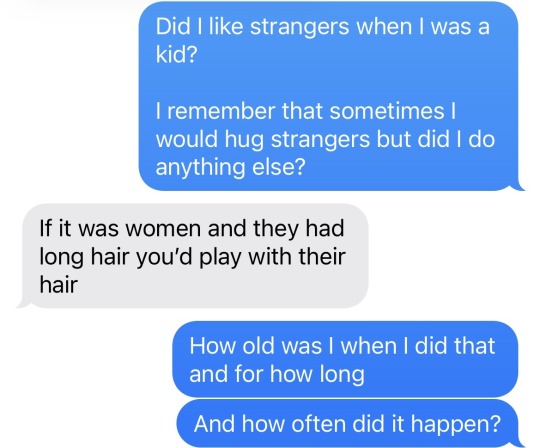
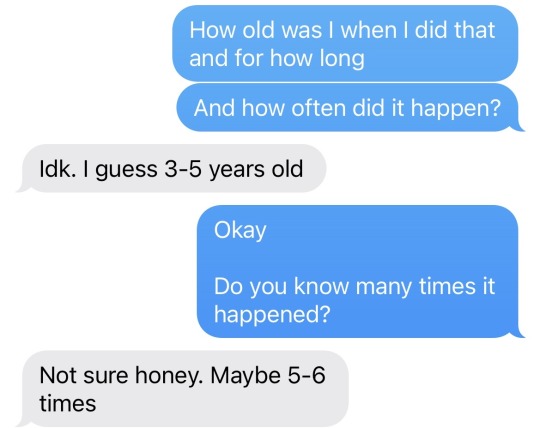
#idk man I just… I’m so fucked up#vent#tw vent#vent 7/4/22#I don’t even know my mom. I don’t feel like I EVER truly ‘ knew ‘ my mom#just like how SHE doesn’t truly know ME#at this point I don’t even know if I want to get closer to her#I don’t want to go through the effort again. I can’t.#I’m TOO FUCKING TIRED!!!#I don’t ‘ NEED ‘ to know my mom now: I NEEDED TO KNOW AS A CHILD#I needed her when I WAS a child; now I’m even more of a fucking burden than I was before!!!#had I not ‘ hAvE ‘ to exist my mom’s life wouldn’t be fucking ruined right now!#nor would my older sisters’ not ANYBODY that I’ve come in contact with/been around be fucked up/fucked over#but ofc the fucked up beings/creators/observers/universe/myself(?) decided it was a good idea for me to exist#fucking sadistic fucked up MORONIC BASTARDS!!!! FUCK YOU!!!!#FUCK ALL OF YOU AND ESPECIALLY FUCK MY STUPID ASS SELF!!!!#fucking jerkasses#tw mom#tw mommy issues#tw mom mention#child neglect#tw child abuse#tw child neglect#and I’m sure that it happened MORE than ‘ 5-6 times ‘ but I’ll just have to see if I can uncover more memories#ik I AT LEAST went towards a stranger when I was with my grandma and she wanted me to come back#because it was a complete stranger I wanted to hug. they could’ve been a bad person#but still. it’s 4:44 am and I’m tired and I’m slightly dissociating#idk if I’ll be able to go to bed soon or not but anyways#and another fucked upset things is is that as a child ( and this was before she married the child molestor. idk if I did it afterwards )#I liked playing with my moms hair too. and I would sleep with her in her bed and play with her hair
1 note
·
View note
Text
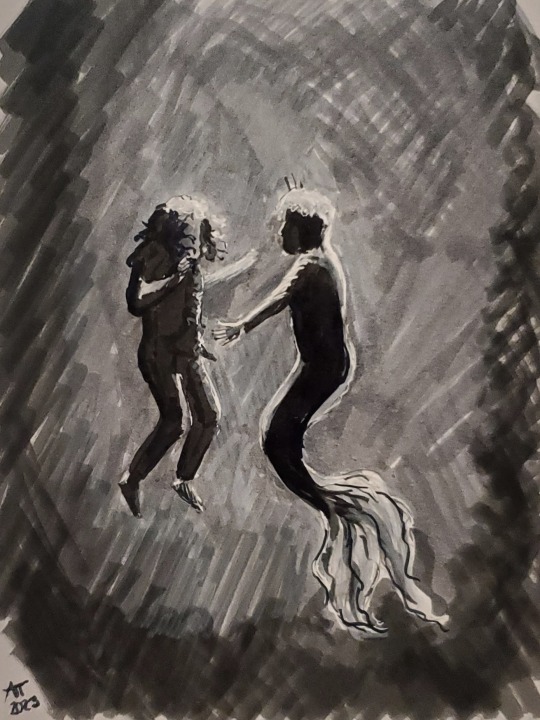
DSED OCTOBER 2023 | Day 6: dynamic
#our flag means death#ofmd s2#ofmd#ofmd s2 spoilers#draw something every day#dsed#DSED October 2023#drawing#doodles
43 notes
·
View notes